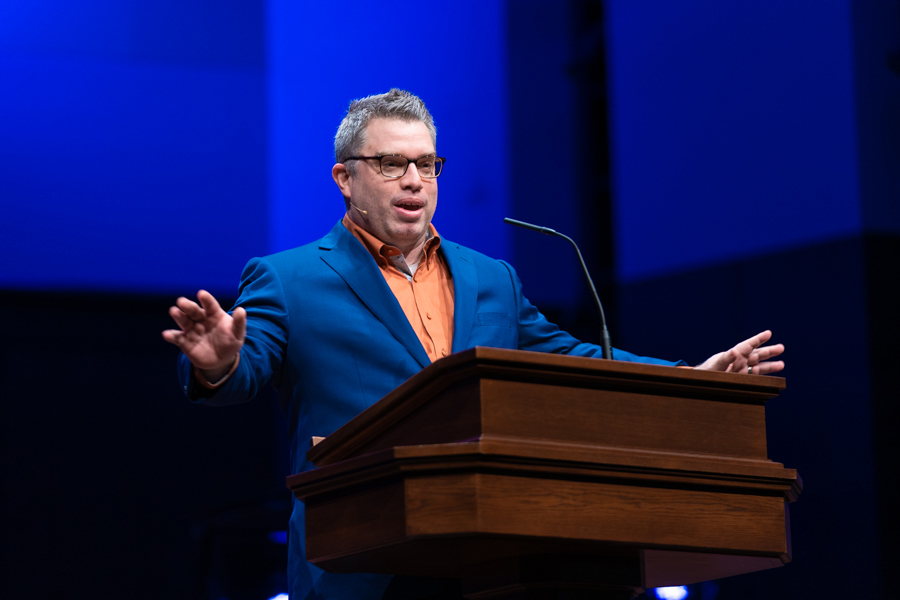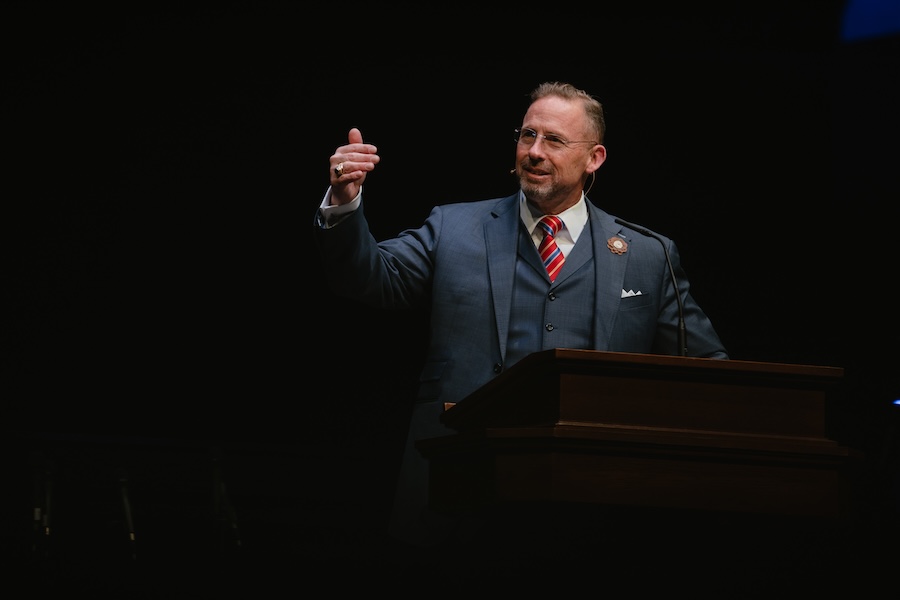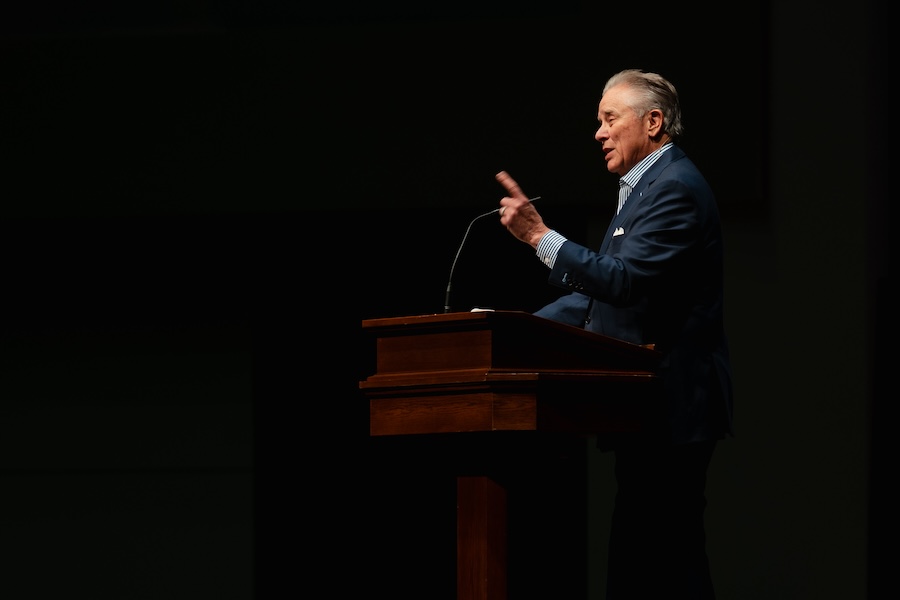Inserra emphasizes importance of evangelizing ‘good people’ who are not saved


Most ministry and evangelism strategies are geared toward skeptics and secular audiences, but they ignore most Americans who believe they are going to heaven because they are “good people,” cautioned Southern Baptist pastor Dean Inserra in his March 3 chapel message at Southwestern Baptist Theological Seminary and Texas Baptist College.
In his introduction of Inserra, Adam W. Greenway, president of Southwestern Seminary and TBC, noted the Florida pastor’s deep and abiding love for the Lord and for Tallahassee, stating, “he wants to love Tallahassee to Christ.”
Inserra, pastor of City Church in Tallahassee, Florida, shared his appreciation for Greenway’s leadership and emphasized his joy and thanks for Southwestern Seminary and the “wonderful” things happening at the institution.
Directing the attention of the assembly to the parable of the Pharisee and the tax collector in Luke 18: 9-14, Inserra contrasted the humble, repentant prayer of the tax collector against the prideful, self-righteousness prayer of the Pharisee at the temple.
The parable, Inserra explained, applies to today’s society where “everyday people in the community” compare themselves with those around them and believe they are going to heaven because they are “good people.”
“It’s really hard to reach people who think they’re fine. It’s really hard to have a Gospel conversation when there isn’t a clear starting point,” Inserra said. “Regular people feel their good deeds outweigh their bad deeds and compare themselves to others around them.” He emphasized that many people believe that being a good person, believing in God, going to church, and praying occasionally equates to Christianity.
Referencing Galatians, Inserra added, “But when anyone believes that their goodness, or their heritage, or their generic beliefs make them right with God and get them to heaven when they die and earn them salvation, they are figuratively holding up a big, flashing neon sign that says, ‘Jesus died for nothing.’” He encouraged the assembly to help people to see that their job is not to simply “admire Jesus,” but to see their need for Jesus.
Drawing a parallel between the Pharisee of the parable and today’s American who possesses a “generic belief in God,” Inserra noted that the Pharisee was not an atheist or agnostic, rather he prayed to God at the temple. Both, he explained, believe their salvation is based upon merit rather than the need for redemption through Jesus Christ.
Inserra mentioned that while some from Southwestern Seminary will travel to mission fields overseas where the Gospel is seldom heard while others are already living in their mission fields in certain parts of the United States among “generic theists” who would call themselves Christian because they are not atheist, agnostic, or part of other world religions.
Jesus explained that the Pharisee had good morals and religion but did not believe in Jesus Christ and went home unjustified, whereas the tax collector who realized his sin and begged God for mercy and forgiveness went home justified because God answered his prayer, Inserra said.
“When you receive grace like that, Christ’s love then compels us to realize that He died so we no longer live for ourselves but for Him died and rose again,” Inserra said.
Referencing verse 14, Inserra observed it is middle-aged men who are “masked with pride and who avoid church and ‘organized religion’” because they refuse to admit their need for reconciliation through Christ.
Inserra cautioned students to not miss the unbelievers in their lives, reminding them that often Christians think of atheists, agnostics, skeptics, and people of other religions. But the lost also include “unsaved Christians” who believe that their faith is linked to the fact that they are good people who are not atheists or agnostics.
“Don’t be fooled by the presence of steeples on a street,” warned Inserra. “Understand that you are walking into a mission field, it just looks different. It’s not covered in hostility; it’s covered in indifference because the people believe they’re fine.”
In closing, Inserra alerted the assembly not to be more passionate about convincing “Christians” they are saved than making sure they are saved. “Do not shrink evangelism down to simply skeptics, and strangers, and people of other religions. Realize there is a whole vast majority of unsaved ‘Christians’ all around us.”
Inserra is founder and lead pastor at City Church in Tallahassee, Florida. He serves as a member of the executive committee of the SBC, an advisory member of ERLC’s leadership council, and a member of Baptist21.
The entire sermon can be viewed here.
Chapel is held every Tuesday and Thursday morning at 10 a.m. (CT) in MacGorman Chapel on the campus of Southwestern Baptist Theological Seminary. Chapel may be viewed live at swbts.edu/live.



